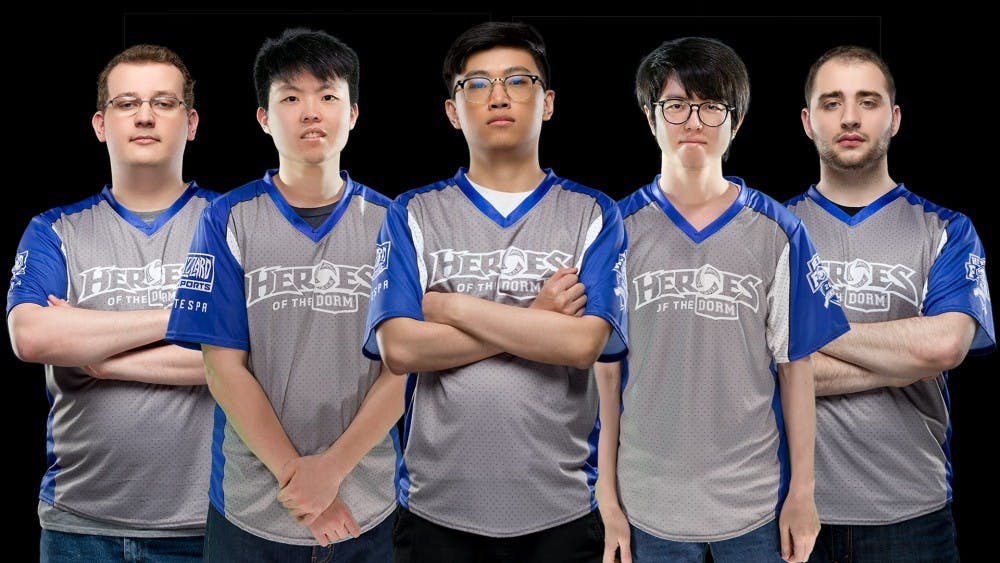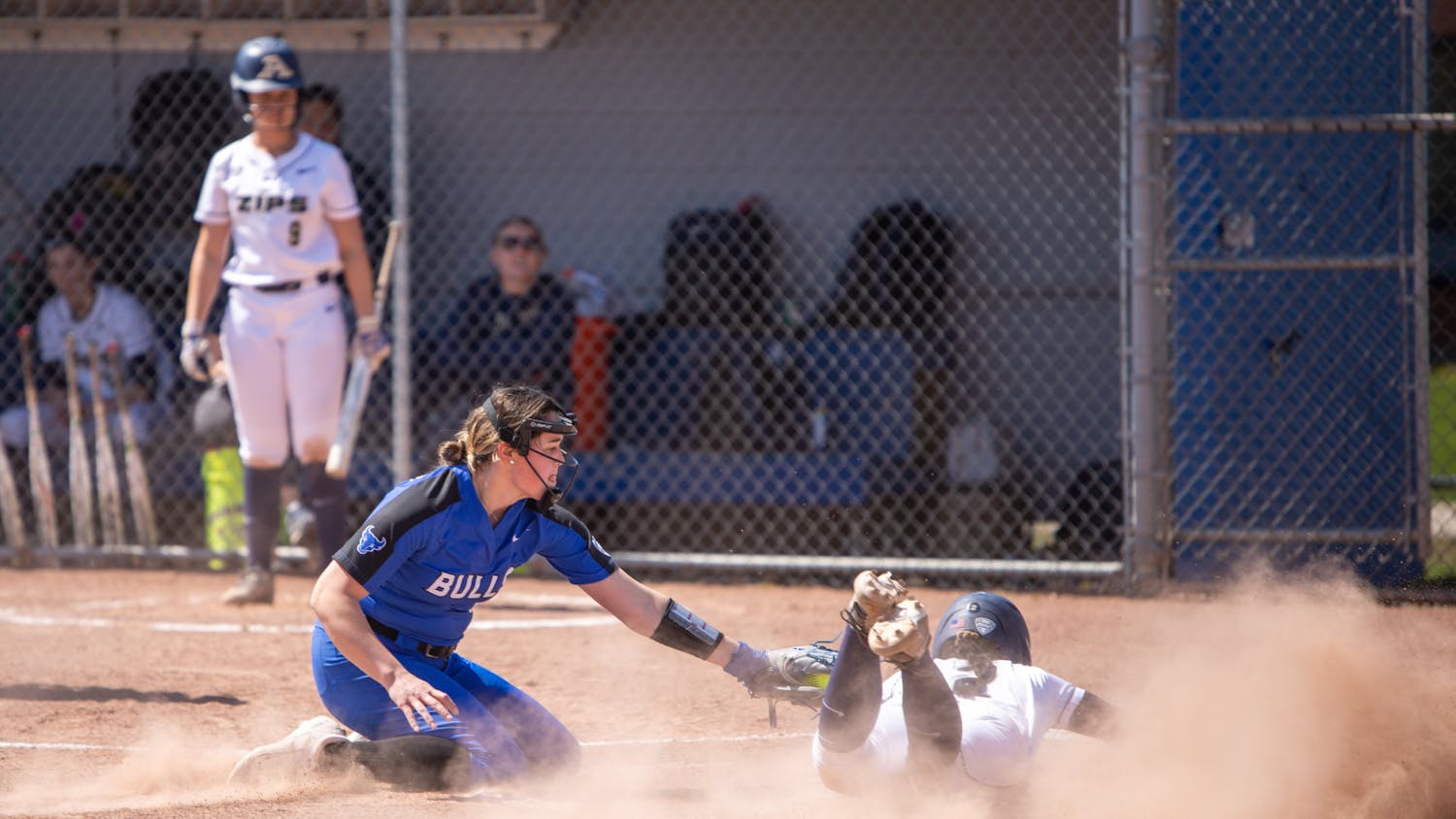LOS ANGELES -- Allen “FantaFiction” Hu, started playing Blizzard Entertainment’s popular video game, Heroes of the Storm, six months ago for fun. Now, he and his teammates are two victories away from winning over $500,000.
Hu, a sophomore accounting major, and his four teammates are competing this weekend in Blizzard’s Heroes of the Dorm competition, the March Madness of collegiate esports. Over 1,000 students comprising over 300 teams competed for the top-64 spots during the tournament’s regular season. The teams then played best-of-three matches to advance up the bracket.
The objective of the game is to destroy the enemy team’s base while picking up kills and capturing map objectives along the way. Killing characters and monsters located throughout the map reward experience points and better map positioning.
After gaining enough experience, which makes characters more powerful and allows them to use different abilities, teams must destroy their opponent’s “core” to end the game. Games typically take under 20 minutes, but depend heavily on which map is selected and teams’ character selection.
UB’s team, “Improbabull Victory,” dominated tournament play with a 34-4 record, an average game time of 14:41 and an average 17 kills per game. Buffalo, the No. 8 seed, beat schools with established esports programs like Boston University and the No. 1 seeded University of California, Irvine.
UB’s team only formed six months ago, while the other remaining teams –– University of Kentucky, Université Laval and California State Polytechnic University, Pomona –– have been together since the competition started in 2015.
Hu said because of this, he expected the team to lose in the round of 32. Now with one of the final four teams remaining, he feels confident they can win it all.
“Beating a team that gets scholarships for playing video games while we don’t was super exciting,” Hu said. “Making it this far was super surprising for us, which is why we’ve got to give it our all. I think there’s a strong possibility we can advance to the final round and win.”
With the esports global market now worth over $1 billion, many universities offer full-ride scholarships for student gamers. Jianyu “sethlordson” Zhang, a senior math major and international student from China thinks UB could compete with other schools its size that have esports programs.
“UB should try creating collegiate esports teams. There are enough competitions for various games that it could prove profitable,” Zhang said. “I haven’t told my parents about the tournament yet, but I know if we win these next two games, they’ll be very proud. Esports are very popular in Asia, and I think they’re finally catching up here in America.”
Preparing for the tournament required teammates to dedicate at least two hours a day during the semester of practice matches. Compared to other remaining teams like Kentucky, who practice six hours a day, members of the epsorts community were surprised to learn how little Improbabull prepared compared to its competition.
Marc “Markybottz” Coiro, a pharmacy graduate student, said the team practiced efficiently, focusing on specific issues they wanted to improve.
“For me, it’s not so much about how much you practice, it’s more about how well you practice,” Coiro said. “You can practice for 10 hours and run the same plays, but you won’t get much out of it. But if you play for two or three hours against a really good opponent and really study what went wrong or right, that’s what helped us gain an edge.”
Even though they practiced less than other teams, dedicating so much time to the competition had its drawbacks.
Coiro found it challenging to balance the tournament and his schoolwork as a graduate student. Often times, schoolwork was neglected to focus on an upcoming match.
“A lot of my teammates aren’t in the most difficult years of their college career, but I’m very much so, it’s rough,” Coiro said. “But I think [the competition] is really important. When we need to practice, we practice. The team’s been understanding about letting me take time off to study for exams.”
Buffalo will face Pomona, a team it lost to during the regular season on Saturday. After playing more matches and defeating the highest ranked team, Hu thinks the outcome will be different.
“I thought that was a super close series against them,” Hu said. “Going into this matchup, it’s a best-of-five instead of three, so if it’s 2-1 again, we can still come win it. We’ve been down before and come back, but after beating Irvine 3-0, I think we’re feeling confident.”
If Improbabull wins the tournament, Hu, the team’s captain, said he will consider becoming a professional player instead of finishing his degree. Players from teams that won in previous years have gone on to sign contracts with professional teams or with Blizzard as announcers and analysts.
“If the opportunity was provided for me to sign as a pro, it’d be a dream come true,” Hu said.
Max Kalnitz is the senior news editor and can be reached at max.kalnitz@ubspectrum.com and @Max_Kalnitz





